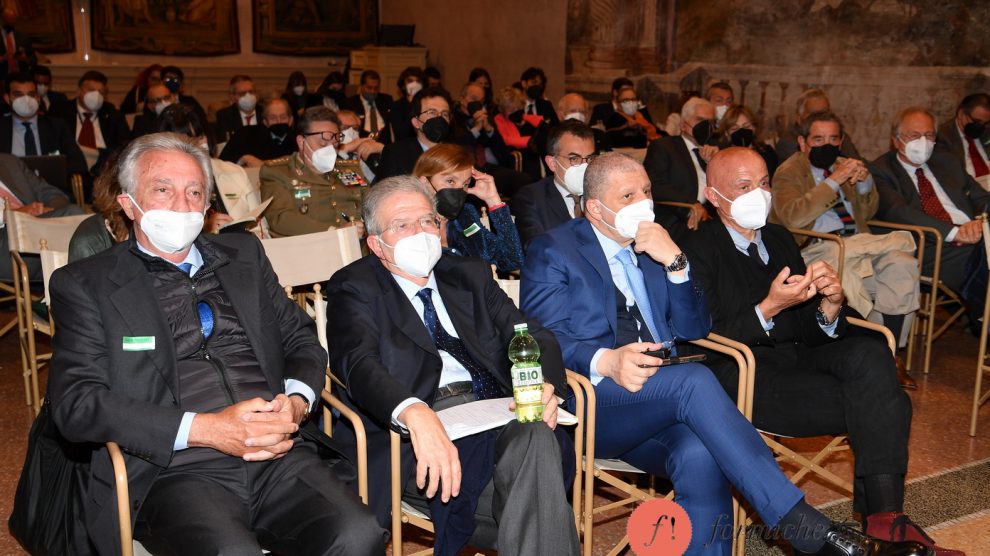In Italy, the Atlanticist party is still alive and kicking. Now it’s looking to be heard.
A Senate conference on the Russian war in Ukraine demonstrated the existence of a cross-party political front keen to draw the line between democracies and dictatorships, aggressors (Russia) and the attacked (Ukraine).
- These political forces see NATO and the United States not as a rival, but as a security guarantee.
For decades, the pro-American forces were a majority that required no explicit assertion of its existence. That, however, has changed in recent years.
- The Five Star Movement, firmly in power since 2018, displayed dangerous proximity to Xi Jinping’s China;
- Matteo Salvini’s League spent years flirting with the Kremlin, as demonstrated by its cooperation treaty with Vladimir Putin’s United Russia party;
- Several other political actors and forces have displayed, time and again, a degree of ambiguity in leaning towards democratic countries and talking about relations with autocracies;
- Some of them are inevitably part of the all-encompassing “national unity” government, led by Mario Draghi, despite the latter’s firmly Atlanticist field choice.
In this framework, Wednesday’s initiative in the Senate marks an eloquent attempt of the pro-American front to coalesce.
- The event may not have caused a stir in the Italian media, where anti-American and Putin-friendly theses are more prevalent – partly due to the mediatic spectacle they fuel and despite the Italians’ overall geopolitical sensitivity.
- However, the level of participants denotes this front is to be taken seriously. Below is a closer look at who was there.
Who attended the Senate event?
- Pier Ferdinando Casini: the former President of the Lower Chamber, he was sitting in the front rows and thundered against the “neutralist pacifism” through which some would abandon Ukraine to its fate. An early Christian Democrat and a convinced Atlanticist, Mr Casini is an authority on foreign policy and has chaired the Chamber’s Foreign Affairs Committee. In January, his name was brought forward by several political forces as a potential candidate for the presidency of the Republic.
- Marco Minniti: the sitting President of the Med-Or Foundation, he was Minister of the Interior and headed the Italian intelligence sector. A connoisseur of international politics, on Wednesday he railed against “the axis of indifference” and called Ukrainian President Volodymyr Zelensky “a hero to whom we must be grateful”.
- Maria Stella Gelmini: current Minister for Regional Affairs and former Education Minister, she is one of the leading members of Forza Italia, the party founded by Silvio Berlusconi, and a key component of the Draghi government. Support for NATO, she said, is “the watershed between reformism and populism”.
- Adolfo Urso: the sitting President of COPASIR (the Italian Parliament’s watchdog body of the intelligence agencies), he is a senator of Fratelli d’Italia. A former Trade Minister under Mr Berlusconi, he is considered a strong supporter of NATO and has a close network of relationships in the States.
- Enrico Borghi: the head of security in the secretariat of the Democratic Party and member of COPASIR, he rose from the ranks of the Christian Democrats. He is convinced that Mr Putin is threatening “the West”, not only Ukraine.
- Andrea Manciulli, a Democrat boasting a vast international experience. He is President of Europa Atlantica.
- Political veterans and journalists Umberto Ranieri and Fabrizio Cicchitto.
Other notable mentions: these political figures were not at the Senate conference, but their colleagues aptly represented them.
- Enrico Letta, former Prime Minister and current leader of the left-leaning Democratic Party.
- Luigi Di Maio, Foreign Minister and key member of the Five Star Movement – arguably among the party’s most Atlanticist.
- Lorenzo Guerini, Defence Minister, who’s worked for years to strengthen NATO and up Italy’s contribution to the Alliance.
Giorgia Meloni, head of the right-wing Fratelli d’Italia, the one and only major party in the opposition and favoured political force to lead the centre-right coalition (despite being politically opposite, she and Mr Letta hold a surprising amount of shared views).




